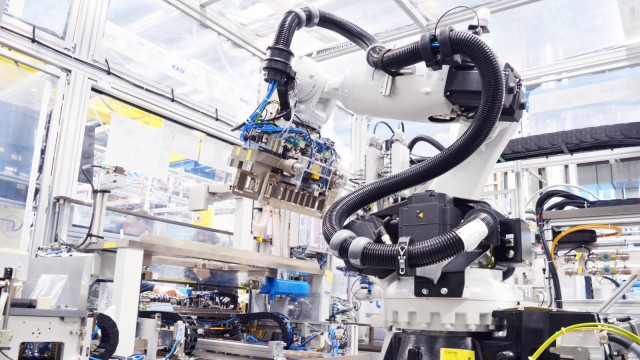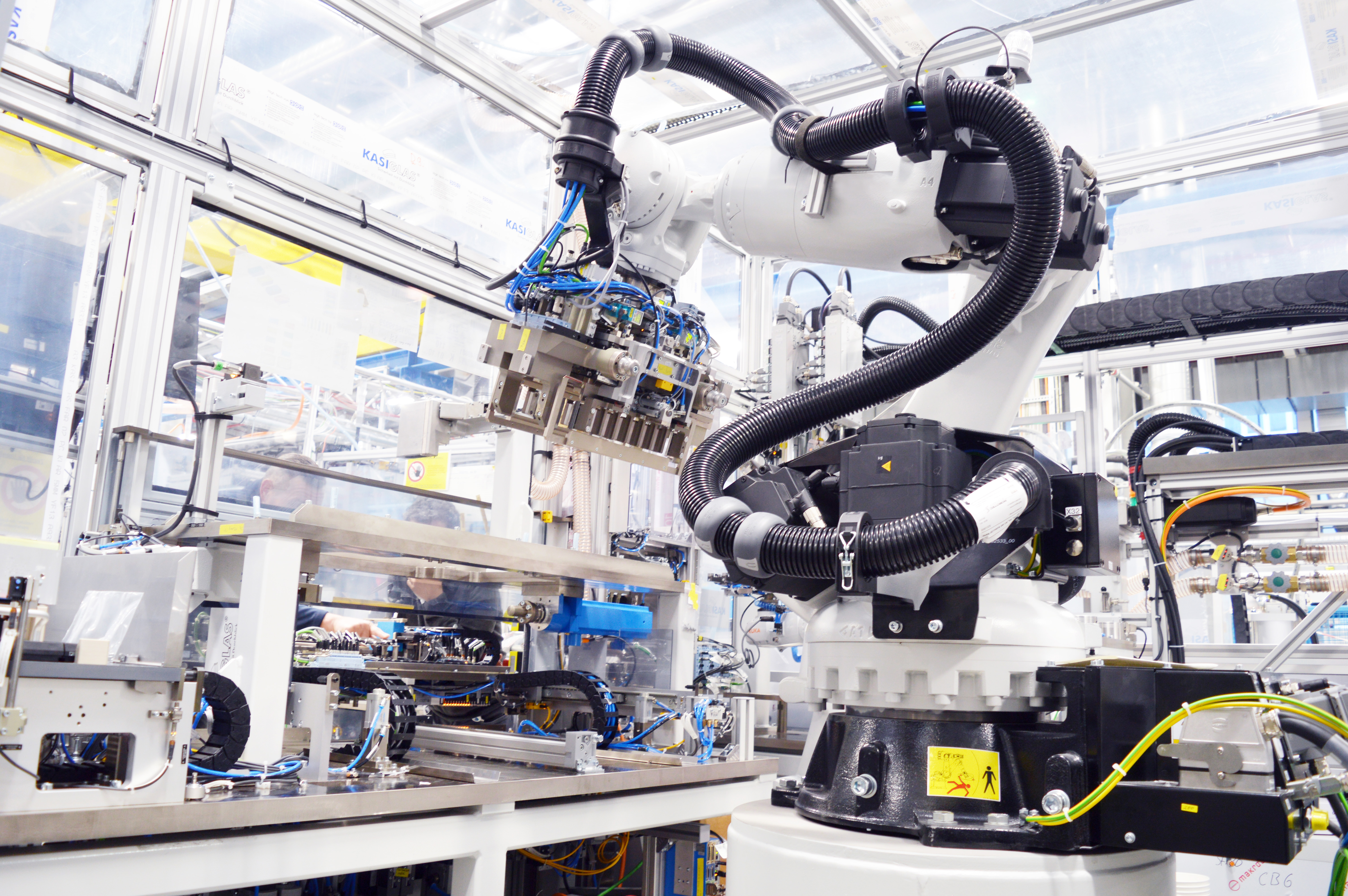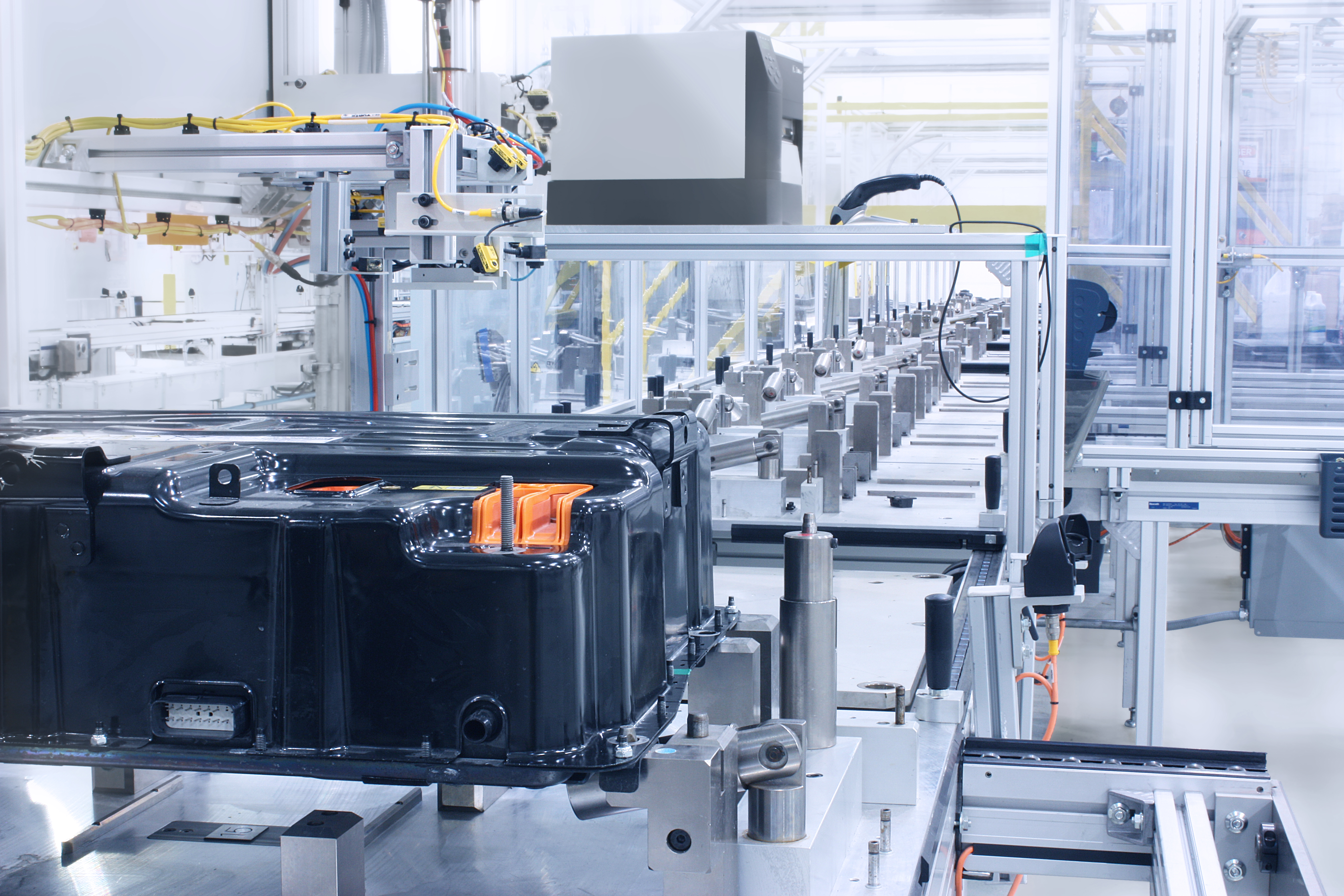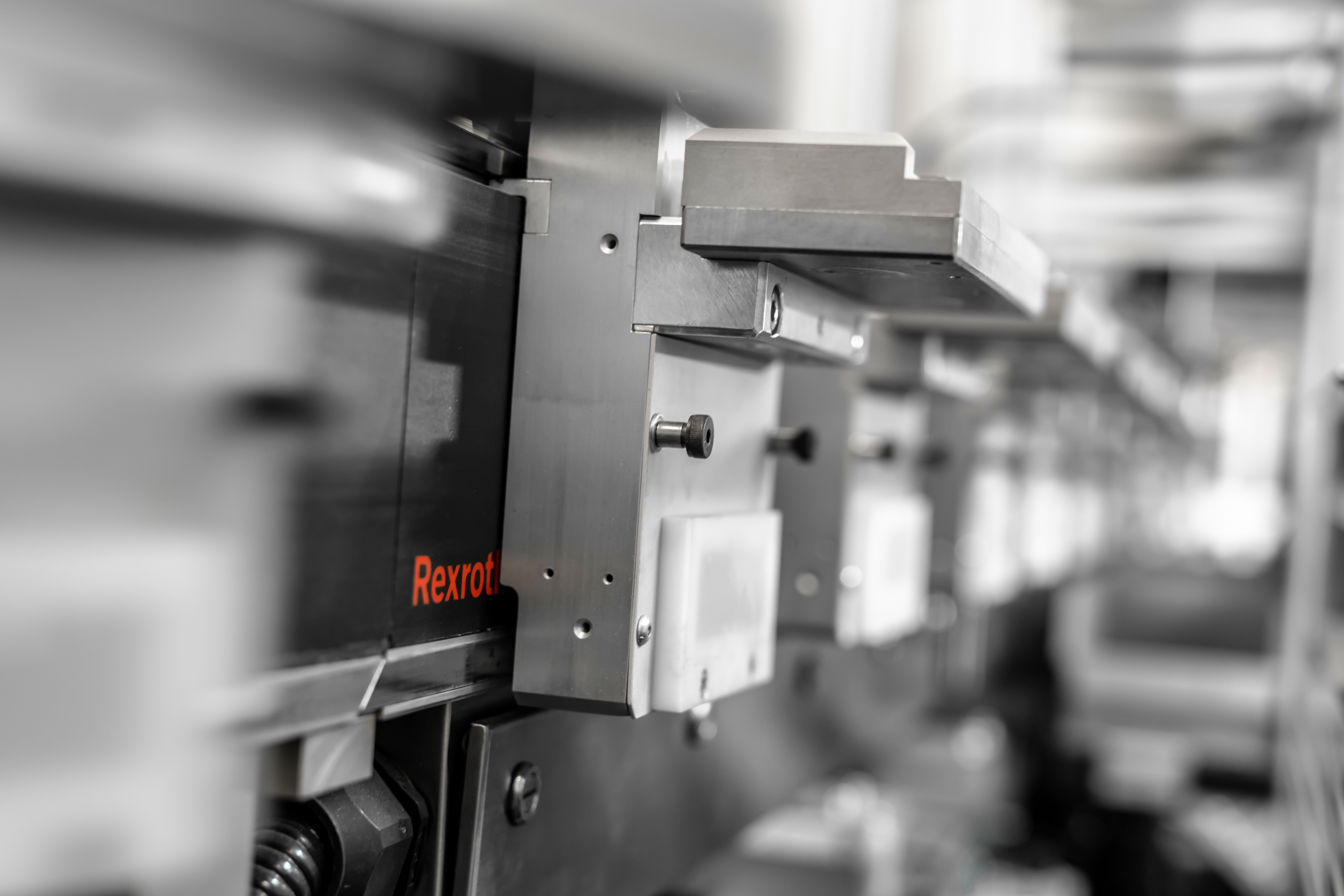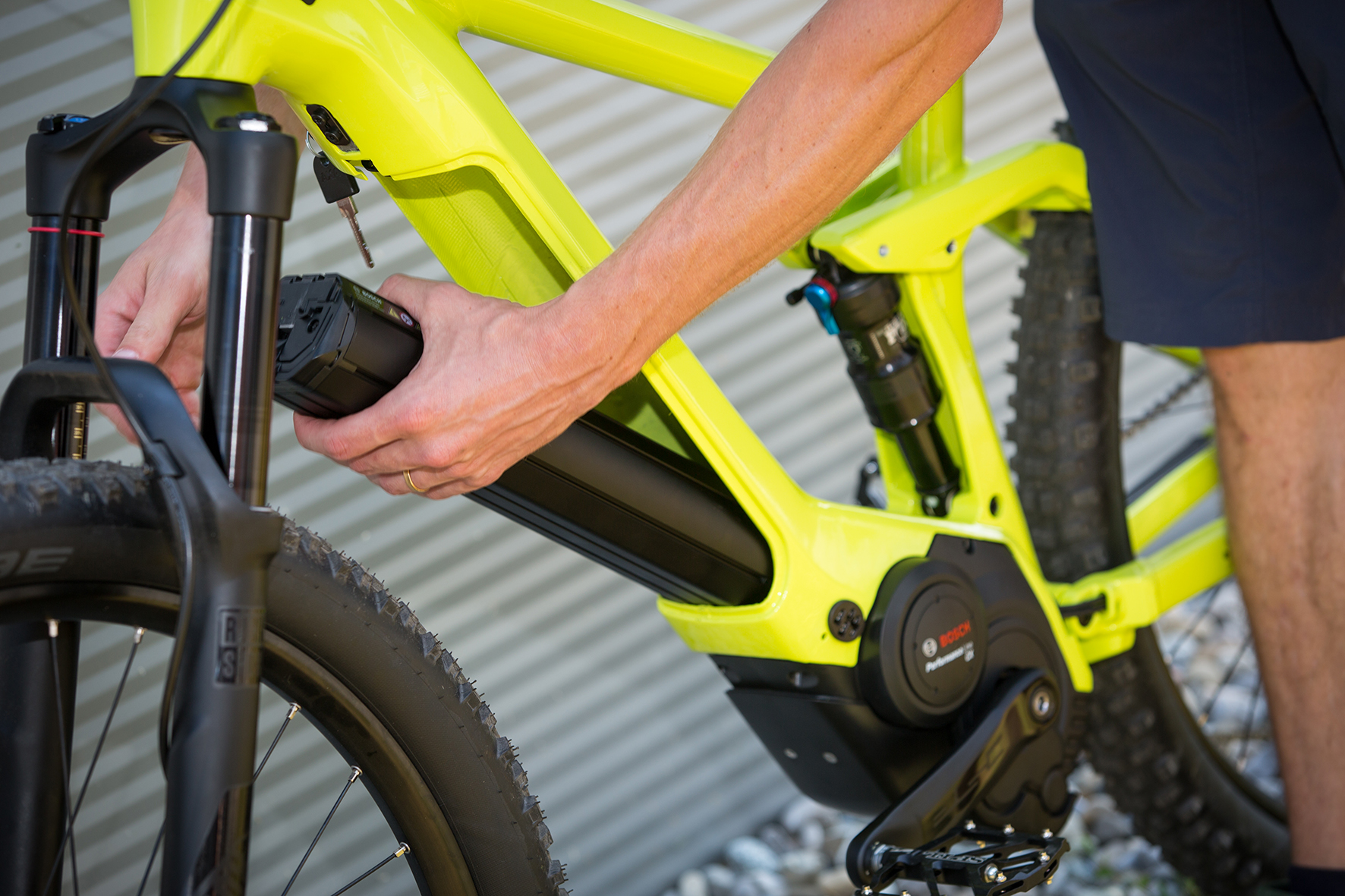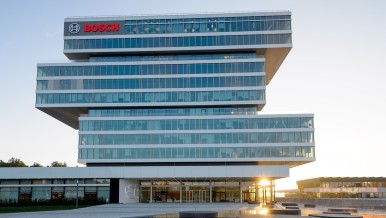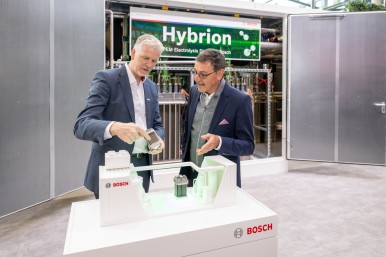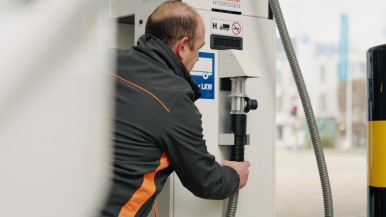Stuttgart, Germany – Bosch is pooling its mechanical engineering expertise and offering companies factory equipment for battery production from a single source – ranging from individual components and software solutions to complete assembly lines. One of its pilot customers is Webasto, which is equipping its battery factories with Bosch technology. “We know batteries like the back of our hand, as well as how they have to be manufactured,” says Rolf Najork, the member of the Bosch board of management responsible for industrial technology. In entering this business, Bosch aims to increase vertical integration in mechanical engineering and, by 2025, to generate annual sales of some 250 million euros with equipment for battery production. Bosch also uses its production know-how in its own plants: at its plant in Eisenach, Germany, Bosch is now launching full-scale production of second-generation 48-volt batteries. The company is investing some 70 million euros this year in expanding local manufacturing operations.
EXPERIENCE BOSCH AT THE IAA MOBILITY 2021 in Munich: Rethinking mobility and making it as safe, emissions-free, and fascinating as possible – this is the goal Bosch has set itself. On a technological level, the supplier of technology and services wants to achieve these aims through personalization, automation, connectivity, and electrification. At this year’s IAA Mobility, Bosch is presenting its full range of two-wheeler and four-wheeler mobility solutions for a climate-neutral future. In addition to the summit at the Munich trade fair center, Bosch will also be downtown at Königsplatz and Odeonsplatz.
BOSCH PRESS CONFERENCE: Monday, September 6, 2021, from 10:45 to 11:00 CEST: with Dr. Volkmar Denner, chairman of the board of management of Robert Bosch GmbH and Dr. Stefan Hartung, chairman of the Mobility Solutions business sector, at the Bosch summit booth C30 in Hall B3 and via livestream on the Bosch Media Service.
FOLLOW the Bosch IAA 2021 highlights at www.bosch-iaa.com and on Twitter: #BoschIAA
Contact persons for press inquiries:
Connected mobility: Annett Fischer, +49 711 811-6286
Electromobility: Thorsten Schönfeld: +49 711 811-43378
Automated mobility: Caroline Schulke, +49 711 811-7088
Smart homes: Dörthe Warnk, +49 711 811-55508
Twitter: @BoschPress
About Bosch
The Bosch Group is a leading global supplier of technology and services. It employs roughly 417,900 associates worldwide (as of December 31, 2024). According to preliminary figures, the company generated sales of 90.5 billion euros in 2024. Its operations are divided into four business sectors: Mobility, Industrial Technology, Consumer Goods, and Energy and Building Technology. With its business activities, the company aims to use technology to help shape universal trends such as automation, electrification, digitalization, connectivity, and an orientation to sustainability. In this context, Bosch’s broad diversification across regions and industries strengthens its innovativeness and robustness. Bosch uses its proven expertise in sensor technology, software, and services to offer customers cross-domain solutions from a single source. It also applies its expertise in connectivity and artificial intelligence in order to develop and manufacture user-friendly, sustainable products. With technology that is “Invented for life,” Bosch wants to help improve quality of life and conserve natural resources. The Bosch Group comprises Robert Bosch GmbH and its roughly 470 subsidiary and regional companies in over 60 countries. Including sales and service partners, Bosch’s global manufacturing, engineering, and sales network covers nearly every country in the world. Bosch’s innovative strength is key to the company’s further development. At 136 locations across the globe, Bosch employs some 86,900 associates in research and development, of which nearly 48,000 are software engineers.
The company was set up in Stuttgart in 1886 by Robert Bosch (1861–1942) as “Workshop for Precision Mechanics and Electrical Engineering.” The special ownership structure of Robert Bosch GmbH guarantees the entrepreneurial freedom of the Bosch Group, making it possible for the company to plan over the long term and to undertake significant upfront investments in the safeguarding of its future. Ninety-four percent of the share capital of Robert Bosch GmbH is held by Robert Bosch Stiftung GmbH, a charitable foundation. The remaining shares are held by Robert Bosch GmbH and by a corporation owned by the Bosch family. The majority of voting rights are held by Robert Bosch Industrietreuhand KG. It is entrusted with the task of safeguarding the company’s long-term existence and in particular its financial independence – in line with the mission handed down in the will of the company’s founder, Robert Bosch.
Additional information is available online at www.bosch.com, www.iot.bosch.com, www.bosch-press.com.

